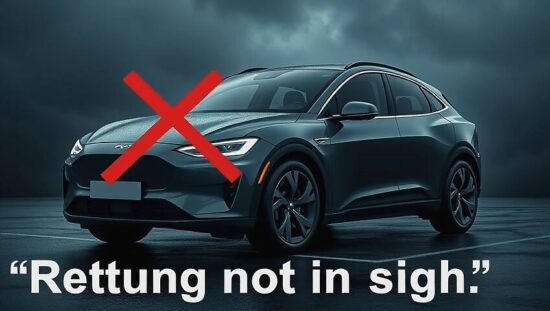A prominent auto expert, Ferdinand Dudenhöffer, has sharply criticized the party plans to save the electric car in Germany. Robert Habeck’s name is synonymous with the “crash landing of the electric car in Germany” and now he wants to rescue the whole thing with a Tesla-copied idea, with just 1,000 euros of charging credit and a highly complex process, Dudenhöffer told the “Neue Osnabrücker Zeitung” (NOZ).
“And what does ‘Social Leasing’ mean, from which income will this apply, how will it be proven? These are administrative procedures that even non-experts couldn’t have thought of and are no more than election campaign chatter” the expert commented on the Greens’ proposals. The SPD’s planned tax rebates for buying an electric car are “better than Habeck’s empty proposal, but will not move the tax meter” Dudenhöffer said. “What matters is the price of the car at the dealer – the vehicle taxes are known by few people. One is looking for a way without public debt, but for that, one is giving up a reduction in tax revenue. That is suboptimal.”
The “Made in Germany-Bonus” proposed by Chancellor Olaf Scholz, which would refund ten percent of the investment, “misses the buyer of the car” he said to the NOZ. “While it is possible to make cars cheaper to produce with this, but for how long? For a few months, it won’t bring anything, it should be a 10- or 15-year plan – but that is completely unrealistic and rather nice election campaign marketing with the motto: We do something, no matter what.”
The EU-wide premium proposed by Scholz was also ruled out by Dudenhöffer. “That will not work at all – never and never would the 27 EU countries agree.”
The CSU’s proposal of a 4,000-euro premium for electric cars, but only for German products, was called a “good proposal – without the adjective ‘German'” by the expert. “If we want electromobility, we can’t exclude Chinese or French cars. That sounds more like Donald Trump.” “The best” would be a general purchase premium, as proposed by Niedersachsen’s SPD Minister-President Stephan Weil. “But only if it is combined with a comprehensive strategy.” It’s not enough to “just throw a few euros out” the expert said. “One must show the people that the electric car is long-term desired and represents the new form of mobility. A 4,000-euro check alone is not enough.”
Dudenhöffer also sharply criticized the proposal of Union candidate Friedrich Merz to repeal the EU’s ban on combustion engines after the election. “There, the goat is being made the gardener. Saying to people: Please don’t buy electric cars!” he said.
Beatrix Keim, director at the Center Automotive Research (CAR), also told the NOZ: “I think a premium is necessary, especially for the private sector. However, not an scrappage premium – the entry into electromobility can also take place through a second car, but that would be limited by a model of such a premium.” A premium should be similar to those in France, Norway, or the USA, and be based on household income and the price of the car. “Who can afford a car over 50,000 euros may not necessarily need a subsidy” the expert said.
It’s also “about the well-being of one of the most important industries, not just in our country, but also in Europe” Keim added. Unlike Dudenhöffer, she sees a possible approach in the Chancellor’s proposal for a premium on EU level, which would be offset by state budgets. “It has been shown that people want to honor their innovative willingness. I believe that with a new funding, better charging infrastructure, and a more affordable charging price, Germany can quickly become a leader in electromobility again.





